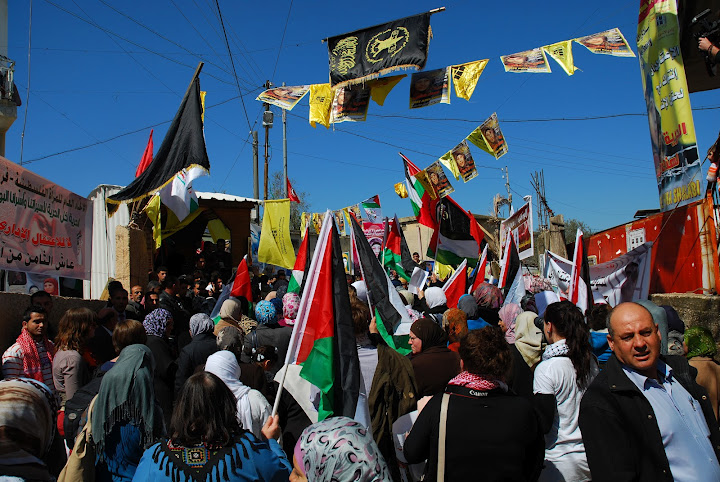Tag: Hana Shalabi
-
Rachel Corrie & Hana Shalabi: Flowers among thistles of Israeli occupation
by Nathan Stuckey 21 March 2012 | International Solidarity Movement, Gaza Rachel Corrie was murdered nine years ago by an Israeli bulldozer. Hana Shalabi has spent the last 34 days on hunger strike an Israeli prison, yet she is accused of no crime. This was not the first time Hana has been held in Israeli…
-
Nablus marches for Hana Shalabi
by Christopher Beckett 21 March 2012 | International Solidarity Movement, West Bank On March 19th 2012, in the occupied West Bank city of Nablus, ISM volunteers joined demonstrators in solidarity with Ms. Hana Shalabi, now entering her 35th day of hunger strike. Marching from outside the headquarters of the Red Cross, a group of around…
-
Bruqin: International Women’s Day Demonstration for Hana Shalabi
by Jeff 8 March 2012 | International Solidarity Movement, West Bank Yesterday, several hundred people traveled from around the West Bank to the village of Bruqin to mark the occasion of International Women’s Day and protest against Israel’s continued imprisonment and confinement of hunger striker Hana Shalabi. Bruqin is Shalabi’s home village, and the…


